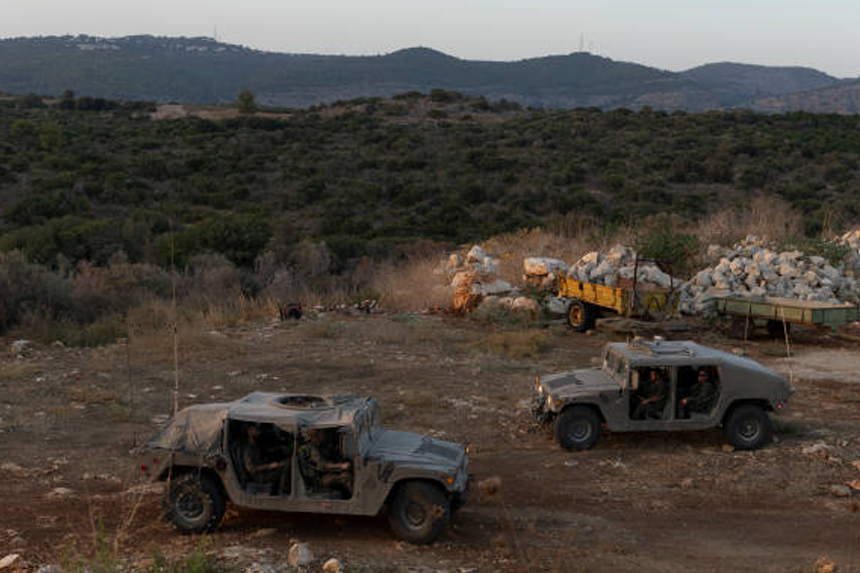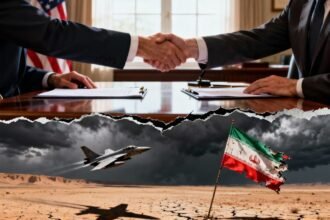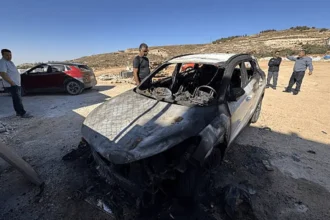A War of Nerves
Once more in upheaval is the Middle East. As tensions between Israel, Lebanon, and Iran rise, international diplomacy is feverishly active. Many people in these countries have a shared experience—a war of nerves—for the first time in the long run. The entire area is holding its breath as they nervously anticipate what could happen. Is this the slope into a regional all-out conflict? Could one negotiate a ceasefire from Gaza’s wreckage? For the recent killings in Beirut and Tehran, how will Iran and Hezbollah, through its proxy militia, exact revenge on Israel? Will they respond to demands to restrain?
Beirut: Living in a Toxic Relationship
Anxiety adds to the terrible summer heat experienced in Lebanon. Frequent disruptions to Beirut’s traffic hum from heart-stopping loud booms created by Israeli airplanes breaking the sound barrier above. Many foreign residents have left in line with guidance from their governments, and many Lebanese have also left. Some, like the thirty-year-old café cook (Beirut has more than enough of them to count), cannot pull themselves away, though. She desires not to be identified yet is tattooed and honest.
“Living in Beirut is like being in a poisonous relationship you can’t leave,” she confides. I am emotionally connected. Although I could go, I have family overseas and am unsure whether I should. Day by day is our life. And we have jokes about the circumstances. She adds in the next breath that business has deteriorated and that she has post-traumatic stress disorder. “It’s like a cold war for us,” she adds. She expects a more severe confrontation but hopes it will be brief.
Diplomats on the Move
International mediators are crisscrossing the territory nonstop to avert a more general clash. Among them is US emissary Amos Hochstein. He says, “We continue to believe that a diplomatic resolution is achievable because we continue to believe that no one truly wants a full-scale war between Lebanon and Israel.” Following a meeting with close Hezbollah supporter Parliamentary Speaker Nabih Berry, Hochstein addressed Beirut.
“I hope so, I believe so,” Hochstein said when asked whether conflict might be avoided. Nevertheless, he said, the longer time passes, the more likely mistakes and mishaps are.
A Looming Catastrophe
The last battle between Israel and Hezbollah in 2006 lasted six weeks and resulted in significant damage and a death toll in Lebanon. Along with maybe 200 Hezbollah fighters, about 1,000 Lebanese citizens perished. Most of the 160 Israelis dead were military. A new conflict would be significantly more lethal and devastating, everyone agrees. Many in Lebanon agree that their nation cannot afford such a war. The political structure is broken, and the economy is dead. The administration battles to ensure the lights are on.
“I hope there won’t be a war,” said Hiba Maslkhi. Lebanon will not be able to cope. We encounter the 35-year-old tracksuit-clad slipper on a seaside slipway in Beirut. She is concentrating on the Mediterranean with a fishing rod in hand. “I hope wiser heads will prevail,” she continues, “and that we can control the escalation so that things don’s get out of control.”
Daily Anxiety and Fear
Every sonic explosion has personal effects on Hiba. “If I hear one, I start to panic and I wonder if they [Israeli forces] have bombed the airport or struck close to my house.” Selling perfume for a job, Hiba thinks Lebanon has already endured enough. Ten months is a long period for us to be mentally devastated, hiding in our homes, she says. “We are scared to start businesses to earn some money because we think war could be around the corner.”
The Conflict's Origins
Beginning last October, the latest round of combat started with an offensive from Gaza that claimed over 1,200 lives in southern Israel, most of them civilian. Soon entering the conflict, Hezbollah fired from Lebanon into Israel. Claiming to be supporting the Palestinian people, the Shia Islamist armed group and political party—designated by Britain and the US as a terrorist organization—said Hezbollah and Israel have been firing since October, uprooting tens of thousands on both sides of their shared border and causing over 500 dead in Lebanon most of which are combatants. According to Israeli sources, 26 of the 40 deaths occurring in their nation are among troops.
Escalation and Retaliation
At the end of July, worries of a more general battle grew stronger after an Israeli attack near Beirut claimed the life of a top Hezbollah leader. Israel said he planned the murder of twelve children in a missile strike on Syria’s Israeli-occupied Golan Heights. Gaza has degenerated into all-out war meanwhile, with Israel’s attacks killing around 40,000 Palestinians, according to numbers from the Hamas-run health ministry—data the World Health Organisation finds reliable.
Diverging Views on the Conflict
Ayman Sakr is greatly concerned about the destruction of Gaza. He is fishing beside Hiba, but their points of view are somewhat different. The fifty-year-old cab driver is adamant that Lebanon will survive should a full-scale conflict start. “We can handle it, although there is some worry,” he says. “We shall protect ourselves at last. If we die, that’s OK. Ayman honors his leader as well as the hundreds of Hezbollah warriors dead against Israel.
“I honor the resistance and those who were martyred from the bottom of my heart,” he adds. “And I honor Hassan Nasrallah, who brought all the Arabs pride. Though everyone worries about Israel, what about the 39,000 individuals Israel has killed? Five-year father Ayman notes the indisputable misery in Gaza but worries it is not getting attention.
“Nobody notices the whole world sees children, women, and the elderly being massacred daily in front of the cameras,” he continues. “Children of people are dying right in front of their sight. Where on Earth is the globe? The silent people are complicit.
Hope for a Wiser Future
Hiba still hopes that complete conflict may be avoided. “Nobody has the right to kill anyone,” she argues—not parties, groups, or militias. I wish the next generation to be more intelligent than before.








